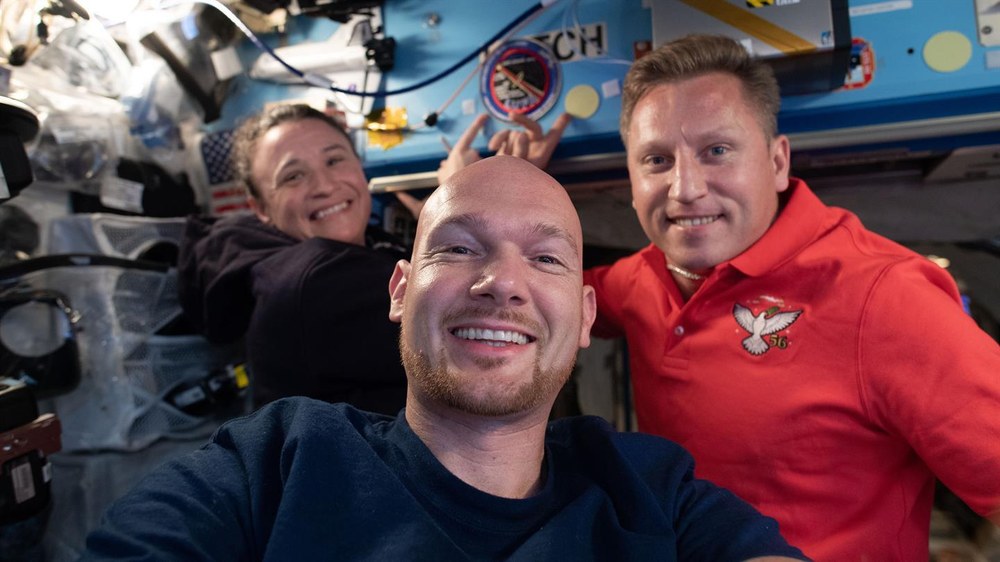Alexander Gerst assumes command of the ISS



- On 3 October 2018, the Day of German Unity, NASA astronaut Andrew Feustel will hand over command of the International Space Station (ISS) to the German ESA astronaut Alexander Gerst
- Ceremony on board the ISS will be broadcast live by NASA and ESA
- Focus: human spaceflight, ISS, international collaboration
Alexander Gerst will undoubtedly never forget 3 October 2018 – on the 'Day of German Unity', the 42-year old geophysicist and astronaut will be the first German and second European to become Commander of the International Space Station (ISS). The ceremony aboard the ISS will last from 04:10 to 16:30 CEST and be broadcast live on the Internet by NASA and ESA. NASA astronaut, Andrew 'Drew' Feustel, Commander of the current 'Expedition 56' crew will then officially hand over the 'top position' on the Space Station to Alexander Gerst. The German ESA astronaut will assume overall responsibility for both the Expedition 57 crew and all modules of the Space Station, that is, the US, Russian, Japanese and European parts, until the end of his mission and return to Earth – which will probably take place on 13 December.
"The transfer of overall responsibility for the crew and the ISS space station to the German ESA astronaut Alexander Gerst is an enormous vote of confidence in the partnership between Europe and the other ISS nations, in particular the two founding nations – the United States and Russia," says Pascale Ehrenfreund, Chair of the German Aerospace Center (Deutsches Zentrum für Luft- und Raumfahrt; DLR) Executive Board.
"Germany is the strongest European partner of the ISS; we are the European leader in the use of the space station with about 40 percent." Passing on command to Alexander Gerst is therefore also a special recognition of the achievements in his two previous ISS missions – 'Blue Dot' in 2014 and 'horizons' this year," adds Walther Pelzer, DLR Executive Board member responsible for the Space Administration and for the German contributions to the 'horizons' mission and ESA.
Gerst's crew will continue to be NASA astronaut Serena Auñón-Chancellor and Russian cosmonaut Sergei Prokopjev – with whom @Astro_Alex set off to the ISS for his 'horizons' mission on 6 June 2018. From mid-October, they will be joined by NASA astronaut Nick Hague and cosmonaut Alexey Ovchinin, who will take off for the space station in a Russian Soyuz capsule on 11 October.
Compared to an astronaut's 'normal' everyday life as a mission specialist, for example in the role of a flight engineer or scientist, being captain of the entire spaceship means "maintaining an overview especially in critical situations and making informed decisions," explains Volker Schmid, 'horizons' Mission Manager and Head of the ISS Division at the DLR Space Administration in Bonn. Experience of procedures on board the ISS is just as important as being accepted by the crew. "The Captain must be a team player more so than anyone else, while earning the respect and confidence to assume responsibility for the entire crew and ship, even in a crisis," says Schmid. The Commander also works extremely closely with the Flight Director and mission team on the ground to ensure a successful overall mission. Alexander Gerst is also responsible for safety, the health of the crew and the protection of the ISS modules. In an emergency, he will be the one who makes decisions regarding rescue measures, including aborting the mission or returning to Earth prematurely.
